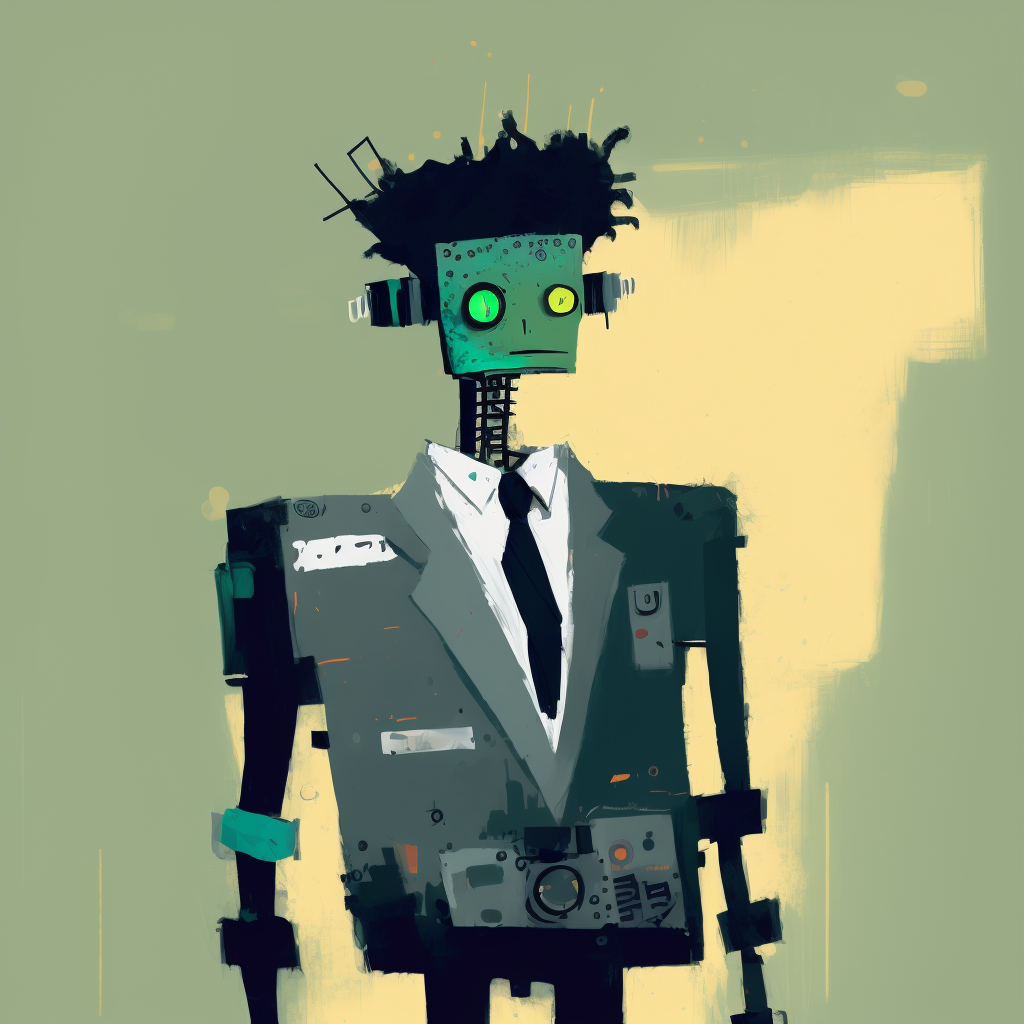Automating the CEO?
A recent series of stories on the press (like this) have been talking about this company who replaced its CEO with an AI. A PR stunt, obviously, but darkly ironic nonetheless. Because, for as absurd and improbable as it may seem, it’s also perversely logical.
Robot CEO, created by MidJourney
As AI evolves faster than our ability to predict its impact, lots of surprises keep happening. It’s penetration into creative fields, as opposed to more repetitive tasks is one that caught the world by surprise. Now there’s a wave of half-joking discussions around how it may also hit high-level, decision making positions, faster than operational ones.
Rational decisions taking under consideration sets of factors more complex than the human brain can handle is, after all, a great application of the tech.
The hidden-jester in me wants to giggle. For all the anger around the millions of jobs lost for robots, it would be at least funny to imagine that that the C suite would be taken down first (or faster).
Then we stop and think. Do we really want artificial bosses tuned for efficiency deciding on what jobs to create and keep? That indeed could be a jobs problem.
No matter what, this discussion exemplifies the problem with forecasting the impact of AI on our world. Because the prediction is part predicting the development path. Part understanding it’s adoption curve. And part adding some wild swings of imagination for what this combination may cause.
The combo of an explosive tech with an eager society is pure chaos. Which makes all AI-inspired stories ever written suddenly possible.
